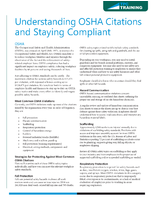AIA's 65th Annual Meeting a record-breaking success.
Press Release Summary:
On May 26-27, Williamsburg, VA saw record-breaking influx of aerospace executives at AIA's 65th Board of Governors and Membership Meeting. More than 230 CEOs, senior company representatives, speakers, and staff participated, and 6 new member companies were approved. Recurrent themes among speakers included need to improve education of science, technology, engineering, and math students; importance of partnership between Defense Department and industry; and modernizing export control system.
Original Press Release:
65th Annual Meeting a Success
Membership Rolls Reach Record Number
The colonial town of Williamsburg, Va., saw a record-breaking influx of aerospace executives at AIA's 65th Board of Governors & Membership Meeting May 26 -27. More than 230 CEOs, senior company representatives, speakers and staff participated - making it the largest meeting in AIA's history. In addition to a stellar lineup of speakers, the Executive Committee approved six new member companies, bringing the association's membership to an all-time high of 120.
The companies welcomed to the AIA ranks include Guardsmark, Integral Systems, Jabil, KPMG Aerospace and Defense, Paragon Space Development Corporation and Tech Manufacturing.
"The remarkable increase in membership is a mark of the effectiveness of AIA as a strong advocate for industry," said AIA Chairman Scott Donnelly. "The dividends from focusing on planning and advocacy are paying off in every quarter of the association. Our voice is being heard."
Scott Donnelly addresses the assembly
Donnelly, who also is president and chief executive officer of Textron Inc., chaired the meeting, which featured high-profile speakers across the spectrum of aerospace issues. From DARPA Director Regina Dugan, Under Secretary of Defense for Policy Michele Flournoy to Virginia Governor Robert McDonnell and Federal Reserve Bank of Richmond President Jeffrey Lacker, the important industry issues for aerospace were addressed by senior policy makers.
Other speakers included General James Mattis, Commander of the U.S. Joint Forces Command and Domingo Urena-Raso, president elect of the Aerospace and Defense Industries Association of Europe, former Senator Ted Stevens and CSIS President John Hamre.
A number of themes were recurrent among the speakers: the need to improve education of science, technology, engineering and math students; the importance of the partnership between the Defense Department and industry; the imperative to modernize the export control system; and the burden that our growing national debt places on our country and national security.
Session Highlights:
Virginia Governor Robert McDonnell
Virginia Governor Robert McDonnell kicked off the meeting Wednesday evening with remarks recognizing the importance of aerospace to his state and the national economy. The governor cited the need to improve our education of science, technology and engineering and math students and get the "next generation of superstars in your industry." The governor also stressed the need to improve the business climate by reducing the corporate tax rate, among other measures. The governor said that the national debt measured out at $100,000 for every American family of four and called for a reassessment of spending priorities at every level.
General James Mattis
General James Mattis was one of several speakers stressing the need to modernize the export control system. Calling export control reform a national imperative, he said that we needed to allow industry to be competitive, and that the new military strategy just released by President Obama endorsed coalition warfare, which necessitated that weapons systems be interoperable among partners and allies. Calling the military a national treasure, General Mattis said that nations trust and look to the United States, particularly in times of disaster.
Michele Flournoy
Discussing the new Quadrennial Defense Review, Michele Flournoy, undersecretary of defense for policy, called on a renewed partnership between the public and private sectors saying "we're in this together, and the strength of our partnership will impact our ability to succeed." Flournoy called the trend lines in the defense budget "unsustainable," and said that Secretary Gates' recent calls to reduce overhead and inefficiencies will ultimately allow for increased investments in programs.
Dr. Regina Dugan
Director of the Defense Advanced Research Program Agency Dr. Regina Dugan said one of our nation's biggest challenges was the ability to manufacture. While the United States is a large consumer, the percentage of our population involved in manufacturing has dropped from 32 percent in 1940 to 13 percent in 2000. Dugan said that manufacturing, national security and innovation are intertwined and that we need to "break the rules and make new ones" to accelerate manufacturing. She cited a recent test flight of a Falcon Hypersonic Technology Vehicle that was nearly aborted due to a last minute system failure, but a "gutsy" major held fast for a recovery. Keeping his nerve created success, she noted. The successful launch yielded tremendous data for this aircraft, which is designed to travel halfway around the world in an hour.
Ted Stevens
A very thoughtful conversation with former Senator Ted Stevens and CSIS President John Hamre Wednesday afternoon addressed the lack of an adequate long-term defense strategy to guide our military investments and the burden of the nation's debt on our security. Stevens said our desire to keep peace in the world is burdened by our debt and questioned whether the next generation of leaders will continue to fulfill that obligation. Hamre said that the interest on debt would outstrip our defense budget in a matter of years and that the defense committees in Congress need to be strengthened.
Dr. Jeffrey Lacker
Dr. Jeffrey Lacker, president of the Federal Reserve Bank of Richmond, said the nation's economic recovery was "playing out according to form" with the recovery continuing into the next year. However, the most visible and painful fallout from the recession was the loss of more than eight million jobs. Lacker said that aerospace fared well in the recession with the dip in delivery of aircraft and parts being shorter and shallower than other industries and the defense sector of the industry remaining strong throughout. He concluded that he was "fundamentally optimistic about the U.S. economy and the ability to deploy technology that would raise the standard of living" for Americans.
Domingo Urena-Raso
Continuing a long tradition of dialogue with our European sister association at our respective board meetings, Domingo Urena-Raso, president elect of the Aerospace and Defense Industries Association of Europe and chief executive officer of EADS-CASA, addressed the group. He shared EU perspectives on common concerns, including the impact of the worldwide recession, our joint ethics initiative, export control modernization, environmental concerns and interoperability between SESAR and NextGen.
In addition to the speakers, a Civil Aviation Leadership Council meeting headed by L-3 Communications Chairman, President and Corporation Chief Executive Officer Michael Strianese discussed the association's policy on NextGen equipage funding and climate change legislation.
Colonial fifers lead members to dinner Wednesday night
William Bennett
The meeting concluded Thursday evening with a dinner in the Williamsburg Inn and comments by William Bennett, former head of the National Endowment of the Humanities, Secretary of Education and Director of National Drug Control Policy, and current host of Bill Bennett's Morning in America - one of the nation's top-rated daily radio programs.
It's not too early to mark your calendar for the fall meeting of the Board of Governors scheduled for Nov. 17-18 at the Biltmore Hotel in Phoenix, Az. A photo gallery of this spring's meeting is online at http://bit.ly/9ZQx8l.




